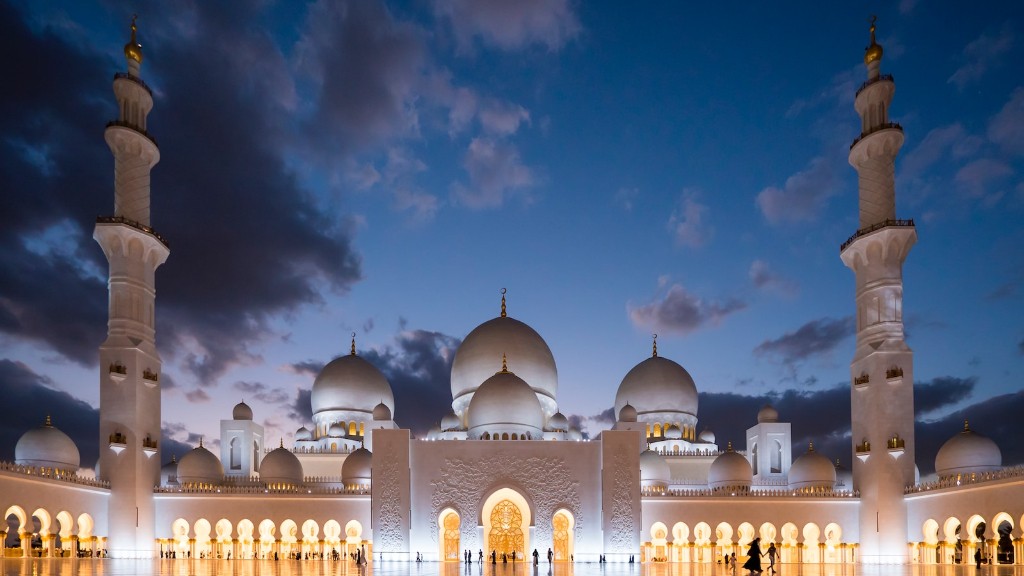Major Festivals of Judaism
Judaism has some of the oldest, most important festivals in the world. These rituals and celebrations are ways for Jewish people to come together to recognize their faith and connections to each other and their shared cultural heritage. Each major festival is observed both as an individual and as a communal event, making each an essential part of a Jew’s life, however celebrated.
Rosh Hashanah
Rosh Hashanah, the Jewish New Year prepares Jews around the world for a spiritually meaningful start to the new year. It is two days long, and is observed over a four-day period, beginning on the first day of Tishri, the seventh month in the Jewish calendar. The customary greeting on this occasion is “L’shanah tovah tikateivu,” which means “May you be inscribed for a good year.” During Rosh Hashanah, a series of services are held in synagogue on the day of, and people often take part in a festive meal afterwards. Apples, round cakes, sweet beverages, and a long prayer are among the traditional Rosh Hashanah customs.
Yom Kippur
Yom Kippur is “The Day of Atonement”, and is the holiest of all the holidays in the Jewish calendar. This is a 25 hour period of fasting and repenting for sins committed the year prior. During this time, food, drink, bathing, meat, jewelry, and work are forbidden, and prayers and synagogue attendance are a must. Yom Kippur ends with a customary Havdallah ceremony, where families gather around and light a special candle to break the fast. The greeting on this day is “G’mar chatimah tovah,” which means “May you be sealed in the book of life.”
Sukkot
Sukkot, commonly referred to as the Feast of Tabernacles, lasts for seven days and celebrates the end of the harvest season. During the festival and beyond, Jews traditionally dwell in a sukkah, literally a booth or hut made of (traditionally, palm) branches. On each night of Sukkot, blessings are recited and the ceremonies are finished with a festive meal, as with Rosh Hashanah. Traditionally, some Jews also take part in a nightly Joyous Gathering called a Simchat Beit HaShoevah, which is usually accompanied by dancing, singing and special prayers for children.
Passover
Passover marks the Jewish holiday of freedom from Egypt and the exodus of the Jews from ancient slavery. Passover lasts for eight days, usually beginning the first full moon after the vernal equinox. During this period, special observances are made and a holiday meal, the Seder, is held. The main staples of the Seder are a hardboiled egg, roasted lamb, unleavened bread, and a selection of fruits and vegetables. All of these items are arranged on a special Seder plate, and are eaten in a certain order during the meal. This order is meant to recall the story of the slaves’ liberation.
Hanukkah
Hanukkah, or the Festival of Lights, is an eight-day holiday which remembers the miracle of the oil lamp when the Maccabees lit a lamp with a single cruse that burned for eight days. Along with the traditional lighting of the menorah, a special nine-candle candelabra with eight lights and a servant light, Jewish people celebrate Hanukkah with stories, songs, and food. It is common to serve fried foods, such as latkes and doughnuts, which are made with oil.
Purim
Purim celebrates the deliverance of the Jews in ancient Persi from a religious persecution. Taking place on the 14th of Adar, usually coincides with March or April, Purim is an entirely joyous affair filled with masquerade, merry drinking, and a festive meal. Other special observances of Purim include shalach manot, which is the gift of food baskets with treats, charity to the poor, and the public reading of the Book of Esther.
Shavuot
Shavuot, or the Feast of Weeks, marks the giving of the Torah at Mount Sinai. It is often called “Pentecost” and is traditionally celebrated for 50 days beginning with Passover. One of the main symbols of Shavuot is making a motzi, a special prayer said to thank God for providing food. The synagogue service includes two Torah scrolls, and is marked by the reading of stories of the giving of the Law. Afterward, there is a festive meal, with dairy foods as the traditional main course.
Celebrations
Jewish people celebrate in many different ways, and all major festivals in Judaism are marked with special observances, foods, prayers, and festivities. Aside from the obvious differences, each of the holidays mentioned have some shared traditions, such as the prayers, festive meals and specific foods associated with each festival. Outside of the synagogue and the home, some families will go to the local park or a school to get together with other members of the community for some additional festivities.
Significance
Every major festival in Judaism is symbolic and spiritually significant, as each one represents a critical principle or moment in Jewish history. Through festivals and celebrations, Jewish people are able to connect to both their ancient past and to their contemporary experience. Festivals and celebrations can mean different things to different people, but no matter one’s particular interpretation, they are a powerful way to deepen spiritual and communal connections.
Practices
Jewish people may practice any number of rituals and traditions associated with the festivals, such as prayer, fasting, gathering with friends and family, exchanging of gifts, and taking part in a traditional holiday meal. Depending on the festival and individual traditions, some people also attend religious services or go to the beach to mark the start of the festival. By engaging in these activities, traditional or cultural, Jews are able to remember their shared history and make an effort to stay connected to one another.
Impact
The major festivals of Judaism have an enormous impact on Jewish culture, society, and the Jewish psyche. These festivals are essential to the Jewish identity and spirituality, as they foster a sense of unity, community, and solidarity among Jewish people. The festivals also provide an opportunity for Jewish people to reflect upon the collective memory of their trials and tribulations, their heritage, and the joyous moments that have formed their history. Lastly, the festivals also act as a way for Jews to be proud of their culture and history and celebrate their common identity.
Outreach
The major festivals of Judaism are often used to reach out to the wider community, both within and outside of the Jewish faith. During these festivals, Jewish people open their doors and share their stories, customs, and rituals with others. In this way, not only are the festivals a time of self-reflection and reaffirmation of Jewish identity, they also offer an opportunity to further bridge the gaps between different faith communities.
Past and Present
The major festivals of Judaism have been celebrated for thousands of years and have adapted over time to fit the circumstances of individual and collective Jewish lives. Today, these festivals are still highly significant for Jews around the world, and celebration of them is still firmly rooted in tradition. These festivals are seen as representative of continuity and as a cultural link to Jews of the past, present and future.
Interpretations
Every Jewish festival has multiple interpretations, both among and within denominations. As times have changed, so have individual perspectives on the major festivals of Judaism. Some Jews emphasize certain observances and traditions, while others focus on the spiritual dimensions of the holidays. No matter the individual interpretation, these festivals remain a significant part of the Jewish experience and an integral part of the intricate tapestry of Jewish culture.



